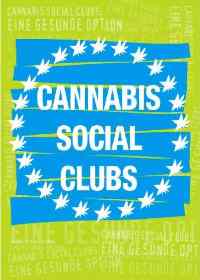WHO: Einstiegsdrogentheorie erklärt nicht den Anstieg des Konsums
Und alle nochmal: Die Einstiegsdrogentheorie ist ein Mythos!
So kommt auch diese aktuell veröffentlichte Studie vom 7. Januar 2010 zu dem Schluss, dass die Anzeichen für eine Einstiegsdrogentheorie eher aus zufällig Übereinstimmungen beständen als aus kausalen Zusammenhängen. So führe der Konsum einer Droge nicht automatisch zum Konsum einer anderen. Der Studie zufolge impliziere dies, dass Präventionsmaßnahmen, die auf den Gebrauch bestimmter „Einstiegsdrogen“ zielen, nicht durch sich selbst zu einer Reduzierung des Konsums führe. Die genutzten Daten aus 17 Staaten sind von dem World Mental Health (WMH) Programm der Weltgesundheitsorganisation gesammelt worden.
via NORML Stash
Der Infotext zur Studie, wie folgt:
(PubMed, US Nat’l Institutes of Health)
BACKGROUND: It is unclear whether the normative sequence of drug use initiation, beginning with tobacco and alcohol, progressing to cannabis and then other illicit drugs, is due to causal effects of specific earlier drug use promoting progression, or to influences of other variables such as drug availability and attitudes. One way to investigate this is to see whether risk of later drug use in the sequence, conditional on use of drugs earlier in the sequence, changes according to time-space variation in use prevalence. We compared patterns and order of initiation of alcohol, tobacco, cannabis, and other illicit drug use across 17 countries with a wide range of drug use prevalence.METHOD: Analyses used data from World Health Organization (WHO) World Mental Health (WMH) Surveys, a series of parallel community epidemiological surveys using the same instruments and field procedures carried out in 17 countries throughout the world.
RESULTS: Initiation of “gateway” substances (i.e. alcohol, tobacco and cannabis) was differentially associated with subsequent onset of other illicit drug use based on background prevalence of gateway substance use. Cross-country differences in substance use prevalence also corresponded to differences in the likelihood of individuals reporting a non-normative sequence of substance initiation.
CONCLUSION: These results suggest the “gateway” pattern at least partially reflects unmeasured common causes rather than causal effects of specific drugs on subsequent use of others. This implies that successful efforts to prevent use of specific “gateway” drugs may not in themselves lead to major reductions in the use of later drugs.

















Ach ja, Louisa Degenhardt leistet großartige Arbeit.
Vor zwei Jahren war Sie schon federführend beteiligt an einer Studie, welche ebenfalls auf den World Mental Health Surveys basierte. Damals untersuchte man die Wirksamkeit repressiver Drogenpolitik und kam zu dem Ergebnis, dass Repression nur einen sehr geringen Einfluss auf die Konsumverbreitung ausübt. Andere Faktoren spielen demnach, bei der Entscheidung zu einer psychoaktiven Substanz zu greifen, eine erheblich größere Rolle.
http://www.plosmedicine.org/article/info:doi/10.1371/journal.pmed.0050141